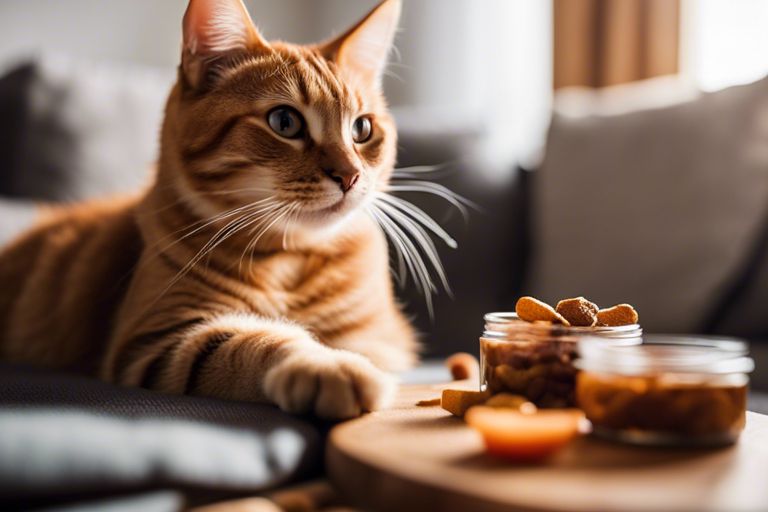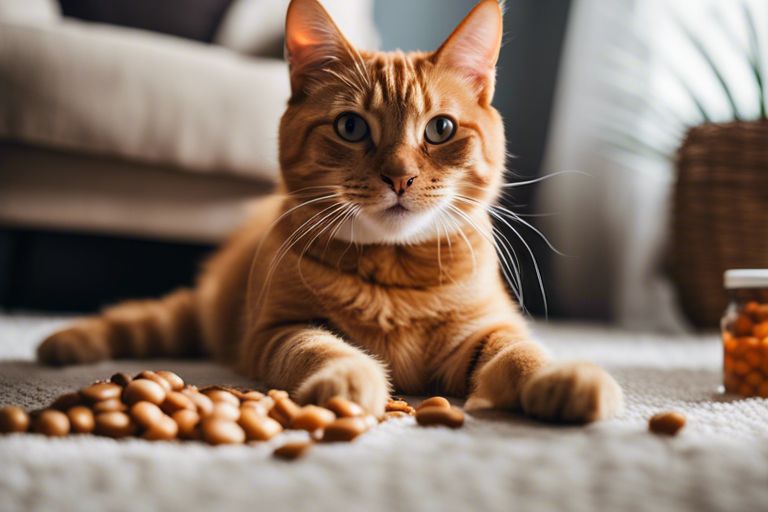Ensuring the optimal health of your cat’s liver is crucial for their overall well-being. The liver plays a vital role in various bodily functions, including detoxification and metabolism. As a responsible pet owner, it is important for you to take proactive measures to maintain the health of your feline companion’s liver. In this blog post, we will discuss important habits and practices that can help keep your cat’s liver in good condition, as well as potential threats to their liver health that you should be mindful of.
Key Takeaways:
- Proper Nutrition: Ensure your cat’s diet is well-balanced and includes essential nutrients for liver health such as taurine, vitamin E, and omega-3 fatty acids.
- Regular Veterinary Check-ups: Schedule annual check-ups to monitor your cat’s liver function and address any potential issues early on.
- Minimize Toxins: Limit your cat’s exposure to household toxins such as cleaning chemicals, plants, and human medications that can harm the liver.
- Parasite Prevention: Regularly deworm and provide flea control to prevent parasites from affecting your cat’s liver.
- Stress Management: Minimize stress in your cat’s environment as it can impact liver function. Provide a comfortable and familiar living space for your cat.
Understanding Feline Liver Diseases
Now, let’s take a closer look at feline liver diseases. Your cat’s liver is a vital organ responsible for a number of important functions, including detoxification, protein synthesis, and the production of digestive enzymes. Liver diseases in cats can be caused by a variety of factors, including infections, toxins, and genetics. Common symptoms of liver disease in cats include jaundice, vomiting, diarrhea, and weight loss.
Common Liver Diseases in Cats
One of the most common liver diseases in cats is hepatic lipidosis, also known as fatty liver disease. This condition occurs when excessive fat accumulates in the liver, leading to liver failure. Another common liver disease is cholangiohepatitis, which is characterized by inflammation of the liver and bile ducts. Additionally, hepatic neoplasia, or liver cancer, can also affect cats.
Risk Factors for Liver Problems
There are several risk factors that can contribute to liver problems in cats. These include obesity, diabetes, exposure to toxins such as certain medications, plants, and household chemicals, as well as infections such as feline leukemia virus and feline immunodeficiency virus. In addition, certain breeds may be genetically predisposed to liver diseases. Knowing the potential risk factors can help you take proactive steps to protect your cat’s liver health.
Nutrition and Diet
Even with a healthy cat, you need to be mindful of their diet to keep their liver in top condition. A nutritious diet is crucial for maintaining liver health in cats. According to Liver Disease in Cats, a resource by the International Cat Care, the food you provide your feline friend plays a significant role in their liver function.
Essential Nutrients for Liver Health
When it comes to your cat’s liver health, certain nutrients are essential. Make sure your cat’s diet includes adequate amounts of protein, vitamins, and minerals such as vitamin E, vitamin K, and zinc. These nutrients support the liver’s ability to function properly and maintain overall health. By ensuring these essential nutrients are a part of your cat’s diet, you can help keep their liver in optimal condition.
Choosing the Right Cat Food
When selecting cat food for your furry companion, opt for high-quality, balanced options. Read the labels carefully and choose cat food that specifically states it supports liver health. A diet that is rich in moisture may also help prevent liver issues, so consider incorporating wet food into your cat’s diet. Additionally, avoid feeding your cat with fatty or processed foods that can strain the liver. By making mindful choices about your cat’s diet, you can effectively contribute to the health of their liver.
Lifestyle and Environmental Considerations
Your cat’s lifestyle and the environment in which they live play a significant role in maintaining their liver health. By paying attention to these factors, you can help promote a healthy liver for your feline friend.
The Role of Exercise and Play
Regular exercise and play are essential for keeping your cat healthy, including their liver. Engaging in physical activity helps to maintain a healthy weight and promotes proper circulation, which is crucial for liver function. Make sure your cat has plenty of opportunities for play and exercise, whether it’s through interactive toys, a climbing tree, or scheduled playtime with you. This not only benefits their overall well-being but also supports their liver health.
Toxins and Their Impact on Liver Health
Exposure to toxins in the environment can have a significant impact on your cat’s liver health. Household chemicals, certain plants, and even some human foods can be harmful to your cat’s liver. Avoid exposing your cat to toxic substances and be mindful of what they come into contact with, both inside and outside the home. Additionally, make sure to keep their living space clean and free of potential toxins. By minimizing their exposure to harmful substances, you can help protect your cat’s liver and overall well-being.

Preventative Care and Regular Check-Ups
Not only is it important to provide your cat with a healthy diet and plenty of exercise, but it’s also essential to schedule regular check-ups with your veterinarian to ensure your cat’s liver health is in good condition. Preventative care and regular veterinary visits are crucial in maintaining your cat’s overall well-being and can help catch any potential liver issues early on.
Importance of Veterinary Visits
Regular veterinary visits are essential for monitoring your cat’s liver health. During these visits, your vet can conduct a thorough physical examination and assess your cat’s overall health. They can also discuss any changes in your cat’s behavior, appetite, or weight, which could be indicative of liver problems. Additionally, your vet can provide guidance on a proper diet and lifestyle to support your cat’s liver function. Remember, early detection of liver issues can significantly improve your cat’s prognosis, which is why regular check-ups are crucial.
Diagnostic Tests for Liver Health
Diagnostic tests, such as blood work and ultrasound scans, may be recommended by your vet to assess your cat’s liver health. These tests can help identify any abnormalities or diseases affecting the liver, allowing for early intervention and treatment. Your vet may also recommend specific dietary changes or supplements to support your cat’s liver function. Understanding the importance of these diagnostic tests and following through with your vet’s recommendations can make a significant impact on your cat’s liver health.
Conclusion: How can I keep my cat’s liver healthy?
Conclusively, maintaining your cat’s liver health is crucial for their overall well-being. By providing a balanced diet, ensuring regular exercise, and minimizing exposure to toxins, you can help keep your cat’s liver in optimal condition. Additionally, regular check-ups with your veterinarian can help identify any potential liver issues early on. Remember to always provide fresh water and a variety of high-quality, liver-friendly foods to support your cat’s liver health. By being proactive and implementing these practices into your cat’s routine, you can contribute to their long-term liver health.
FAQ
Q: What can I do to keep my cat’s liver healthy?
A: To keep your cat’s liver healthy, it’s important to provide a balanced diet that includes high-quality protein, essential fatty acids, and plenty of fresh water. Avoid feeding your cat excessive amounts of unhealthy treats or fatty foods, as this can strain the liver. Regular exercise and mental stimulation can also contribute to overall liver health in cats.
Q: Are there any specific foods I should incorporate into my cat’s diet to support liver health?
A: Yes, certain foods can support your cat’s liver health. Incorporating antioxidant-rich ingredients such as cranberries, spinach, and blueberries can help protect the liver from oxidative damage. Additionally, adding small amounts of milk thistle to your cat’s diet may also promote liver function. Always consult your veterinarian before making any significant changes to your cat’s diet.
Q: What are signs that my cat may have liver issues, and when should I seek veterinary care?
A: Signs of liver issues in cats include loss of appetite, vomiting, diarrhea, jaundice (yellowing of the eyes, gums, or skin), excessive drooling, and weight loss. If you notice any of these symptoms, it’s important to seek veterinary care promptly. Regular veterinary check-ups and blood tests can also help detect and prevent any potential liver problems in your cat.

Jayley, a devoted cat enthusiast, also writer for other cat blog as well. She aims to dedicated to providing comprehensive information, insights, and advice on everything you’d ever want to know about our whiskered companions.
